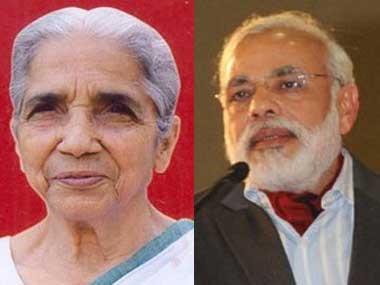Federalism is back on the national agenda, thanks to the discussion on the Lokpal Bill, the proposed Food Security Bill and various other vote-catching bills being planned by the UPA government. A key element in the federalism debate is the appointment of partisan governors by the centre in opposition-ruled states – whether it is in Karnataka or Jharkhand or Gujarat. The tussle between the Gujarat government and Governor Kamla Beniwal over the appointment of the Lokayukta is only the latest flashpoint. Beniwal, apparently cheesed off by Narendra Modi’s alleged delay tactics, decided to appoint the Lokayukta recommended by the Gujarat High Court Chief Justice on her own. In doing so, she did not ask for or go by the advice of the state cabinet. [caption id=“attachment_189518” align=“alignleft” width=“380” caption=“If presidents can largely be elected only with the consent of the party in power, why is this idea not favoured for the appointment of governors?”]  [/caption] In doing so, she probably crossed the line between her constitutional role as governor and her ties to the Congress party. The Supreme Court will decide on the constitutionality of her actions, since the Gujarat High Court has upheld her decision. A commonsense understanding of the governor’s role tells us that she had no business doing what she did. The constitutional role of the governor is restricted to acting on the advice of the state cabinet. He/she has no independent executive power, except when there is no majority government in place. At best, they can ask governments to reconsider ill-advised legislation, or give them private advice on things they consider important. Given this reality, and given the brazenness with which the Congress has used governors for partisan ends in the past, it is a good time to ask: why have governors at all? Just for ceremonial occasions or for those brief periods when a government is in the process of being formed? Or to offer sinecures for out-of-work politicians? In fact, there is a good case for either abolishing the position of governor and/or making the governor an elected official like the president. This way, they cannot be misused indefinitely by the party in power at the centre for destabilising state governments. If presidents can largely be elected only with the consent of the party in power, why is this idea not favoured for the appointment of governors? Why should the centre alone appoint governors without state consent? True federalism means that governments at both the centre and states must be set up on the same basis – with the elected government holding the reins of power without an unelected governor coming in-between. There is no need to privilege the party in power at the centre over the parties in power in the states. In most countries with unitary or presidential forms of government – the US and UK – the states are not held to ransom by federally-appointed political superbosses. If the US does not need a super governor to control the elected one, why does India? We need to abolish the position of state governors. The minor jobs they have to do can be done by either the president – who anyway is not overloaded with work – or another ceremonial functionary. We don’t need a spare wheel at the state level.
There is now a strong case for abolishing the position of state governors. They serve no useful purpose beyond harassment of elected governments.
Advertisement
End of Article
Written by R Jagannathan
R Jagannathan is the Editor-in-Chief of Firstpost. see more


)
)
)
)
)
)
)
)
)



